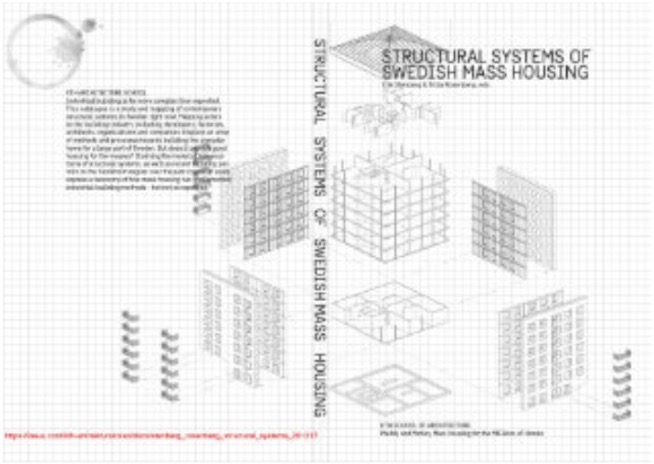Housing

Studio Theme
Living on the Edge: Housing for voluntary communities and involuntary institutions The Housing Studio will explore and design mass housing solutions for the roughly half a million people (and their three hundred thousand housing units) who are living on the edge (…of the norm, of society, of the urban, etc.) and whose dwellings do not make up the majority in today’s Swedish society. This “edge housing” will be studied through the interlinked concepts of voluntary or intentional communities (Hayden 1979 and Brown 2001) and involuntary or total institutions (Goffman 1961). In architectural discourse, Foucault’s use of Bentham’s Panopticon to describe the institutionalization of power (Discipline and Punish 1975) is well known. Though this concept is useful, the course aims to broaden and add complexity to the housing question inherent in non-ordinary housing conditions. Further, we see an increased interest in voluntary communities and a push for more involuntary intuitions in the face of rising nationalistic politics across the globe. In Living on the Edge, we will study this question closer, map historical examples, and design additions/modifications to existing and future communities and institutions.
Studio Method
The studio proposes a process of designing mass housing as it relates to structural and material methods intimately tied to a historical perspective while critically engaging in today's housing debates and sustainability. We think that design through knowledge in material and architectural technology implicates the understanding of tectonics and space. Our ambition is to give students a thorough knowledge of the processes and mechanics of housing in order to upgrade and improve the architects' role in current practices. The studio will foster an empathetic attitude for the complementary roles of the architect and engineer. Each semester will include a phase of identifying and researching existing examples as well as a design phase proposing new mass housing. Our teaching methodology proactively engages with contemporary practices by making extensive use of lectures and case studies.
Teachers: Erik Stenberg, Maria Orvesten
